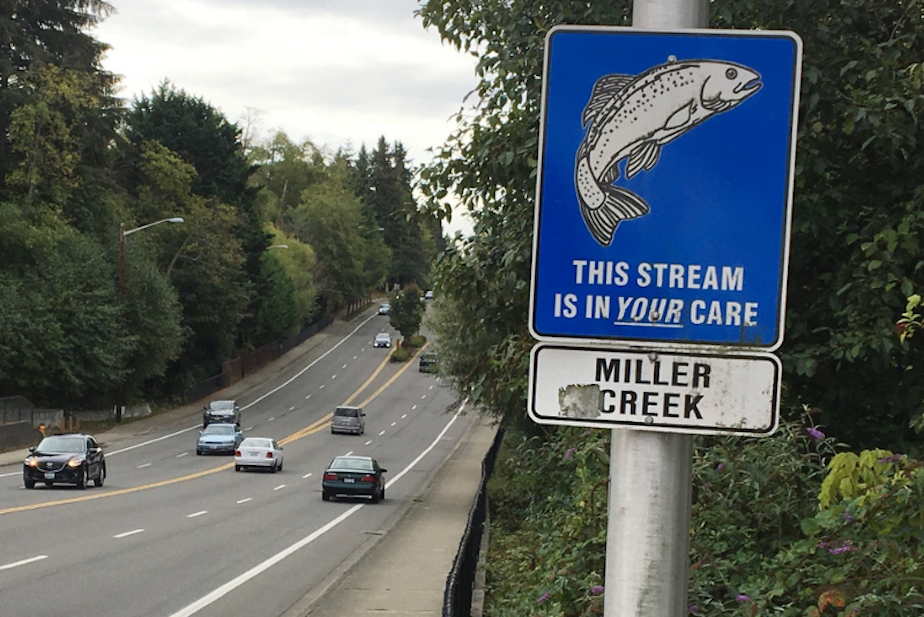Salmon-killing tires get congressional hearing

A study that pinpointed a chemical from car tires as the cause of salmon die-offs in West Coast creeks has prompted a congressional hearing.
The toxic effects of tire dust and skid marks on coho salmon were the subject of a U.S. House of Representatives Natural Resources Committee hearing Thursday.
Washington State University researcher Jenifer McIntyre said 6PPD-quinone, a chemical recently discovered in used tires, has been washing off roadways and killing coho salmon.
“This new chemical has been measured in surface waters by our group and others in North America and around the world in concentrations that we know kill coho salmon,” McIntyre testified.
Runoff from pavement carries thousands of different, mostly unidentified, chemicals into nearby waters: from motor oil, antifreeze, brake linings, tire dust, and more.
According to the Puget Sound Partnership, that runoff is the main source of toxic pollution in Puget Sound, where fish in urban bays often develop tumors and lesions.
It took decades of scientific research to pinpoint what was killing coho salmon in urban streams on their way home to spawn.
The culprit chemical is produced when 6PPD, a rubber stabilizer used in most tires, reacts with ozone in the air to form 6PPD-quinone.
“It is a chemical that is as ubiquitous as cars and roads,” Democratic Rep. Katie Porter of California said. “6PPD-quinone is quite literally what you get when the rubber meets the road.”
McIntyre and U.S. Tire Manufacturers Association representative Sarah Amick both said still more research is needed before any attempt to require salmon-safe tires.
"Our members are committed to making safe, efficient and reliable tires," Amick said.
Republicans on the committee also emphasized the need for further research.
“It is but one study in one location focusing on one species,” Republican Rep. Paul Gosar of Arizona said.
While the study published in the journal Science in January did focus on one species, it looked at water pollution from Puget Sound to Southern California.
Coho salmon in California, Oregon and southwestern Washington are listed as threatened or endangered under the Endangered Species Act.
Rather than force sweeping changes on an entire industry, Republicans on the committee called for more efforts to filter roadway runoff before it reaches salmon streams.
“Stormwater can be filtered in numerous ways, including rain gardens, bioretention ponds, and bioswales,” Gosar said.
McIntyre said that such biofiltration is very effective at removing toxic contamination but very expensive.
"Even if this harmful chemical was removed from tire production today, we will be dealing with the legacy of its use for the next 15 to 20 years," Nisqually Tribe biologist David Troutt said.
He said the collapse of coho salmon runs around Puget Sound have damaged tribal treaty rights.
He said the Nisqually Tribe was working on a pilot project to line a state highway with compostable biofilters and called for the approach to be adopted statewide.
Porter said with shredded tires used in playgrounds and artificial turf, more research is urgently needed to learn if tire bits affect human health.
“We need to treat this with urgency befitting a danger to our children,” Porter said. “It will likely take years to answer these questions, but there is no time to waste.”
To help car tires — and maybe salmon runs — last longer:
- Drive less. Fewer miles driven equals less tire dust.
- Keep tires properly inflated and maintained.
- Drive less aggressively: Don’t “lay rubber” when accelerating or braking.
- Drive small. Small cars shed about half as much tire dust per mile as large cars, according to European studies. Trucks shed several times more.




